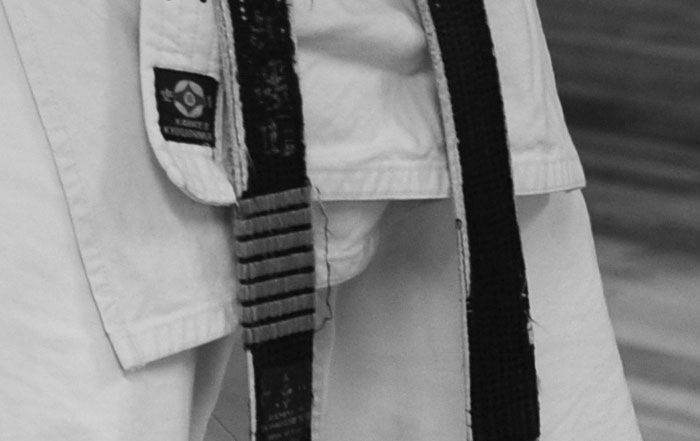The trend in karate today is to call it a sport, what is a sport? If you look in a dictionary the definition is, a game or competitive activity, especially an outdoor one, involving physical exertion. There is competition but with yourself, to fight against your own problems and weaknesses are profoundly more important than winning a competition against others. Sometimes we train outdoors and certainly it involves physical exertion, there the similarity ends.
In today’s sports, how often do you see the players or competitors arguing with the judgment of referees, even fighting one another. Excuses are made such as the stress of the moment and a lot is at stake, which usually means money. Is money so important that this is the way to act, is this the way in which to try to improve the society in which we live. We must set an example for the younger generation, they are the future, how can we blame them for bad behavior when we are supposed to set the example.
We even see the winners holding their hands up high showing that they are number one, is this the Budo Sosai talked about. I teach my students to be humble in defeat and victory.
It amuses me to watch two of my students fighting, sometimes one is hit rather hard but he does not lose his temper. His first comment is to congratulate his opponent on such a fine match and to find out how it was that he was hit and with what technique.
Little did I know that when I started training how it would influence the rest of my life. From those early days I progressed to become one of the highest grades in the Kyokushin world.
At the age of 21 I went to study in Japan with Sosai Oyama (1971), the founder of Kyokushin Karate, I stayed for two years. During my time in Japan I rose to the rank of 3rd Dan and completed the “100-man fight”, a task involving fighting one hundred matches of a two-minute duration without a break, some years later I found out that I was the first to complete the task in one day.
I was inexperienced when I competed for the first time in the 1971 Kyokushin All Japan Tournament. I did not do so well. Then in the 1972 Kyokushin All Japan Tournament I was runner up a feat not matched by any other none Japanese. During my fighting career I was British and European champion. My last competition was in 1979 at the second Kyokushin world tournament where I took fifth place.
Competing although an important part of Kyokushin, should not be over emphasized, as is the case today. It does not matter where I go to in the world competing is high on the agenda.
Today more and more dojos are basing their regular training on competition training and ignoring other aspects of Kyokushin training. Remember that competition is not Kumite! There are rules and regulations limiting your technique, which is good, as we need to protect the competitors. I competed for many years but I always remembered that it was a game for a day.
The more we focus on competition the more we ignore and forget the true meaning of Kyokushin.






